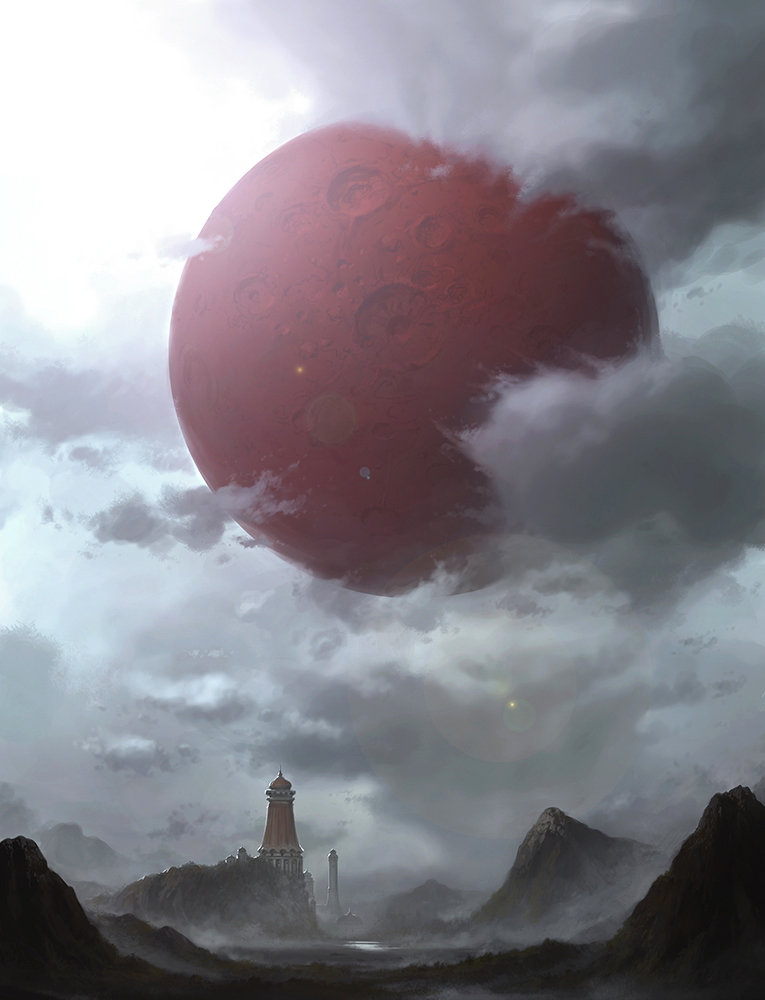There are a few key points to my thought process:
- I try to take an almost evolutionary approach to it, thinking about how the remaining elements or the world adapts to the lack of the element.
- I generally try to not conflate the science with elementalism. For instance, ice is just solid water, but in a world without earth, ice may be, in an elementalist sense, meaningfully distinct from water and take that role.
- That being said, I'm willing to break this soft rule if it would be more interesting to do so.
These are very brief. I've been struggling with putting my thoughts to words lately; I'm sitting on several new settings which I think are really cool but just haven't been able to write them up. There's something to be said for brevity though, so maybe it's ok if they are just brief little blurbs.
A World with no Earth
Large ocean. Pillars of ice the size of cities pulled up towards the sky, connected by bifrost bridges. Rays of focused light rain from the sky like beams of holy light, burning into the ever-rising pillars, sculpting the landscape, and inducing violent wave patterns into the ocean. This is a world of constant change and high concepts, of flight and mobility, a world that feels light and airy.
Red Moon. Couldn't find a good image with a red moon, steam or smoke vents, and red hot stones and glass, but I think this gets the vibe across of being fire-less and dark.
A World with no Fire
Harsh winds vibrate glass and stones to glowing red. The world is pocked with vents of steam and smoke from naturally-occurring coal and hydrothermal power. A softly glowing red moon provides barely any heat or illumination. On land, this is a harsh and tired world of survivors, of competitive energy-oases. It is a world of little change and little accrued knowledge, except what is necessary for survival. In the bubbling oceans, hot-water life thrives. Who knows what rests in the energy-rich deeps...
A World with no Water
Magma oceans. Gelatinous humid air. Glass planes cut through swimmable air; a vertical landscape. This is a world of strict hierarchy, of unmoving objects, of tradition and propriety. Except for the sky pirates...
A world with no Air
Silent and still. Flat oceans. Pockets of city-sized sugary ooze containing zymological life. A low and persistent dusty fog. Geothermal vents glow from ocean pits, as do motionless volcanoes topped like molten glass.




For lack of a better way to say it, this is a fun way of doing worldbuilding and you do it well. I was thinking the other day, an elf (or an ogre, or an elemental, or grimdark, or what have you) is more like "claustrophobic" than a specific instantiation. It's a feeling. This post does those feelings well.
ReplyDeleteThanks, great blog post
ReplyDelete